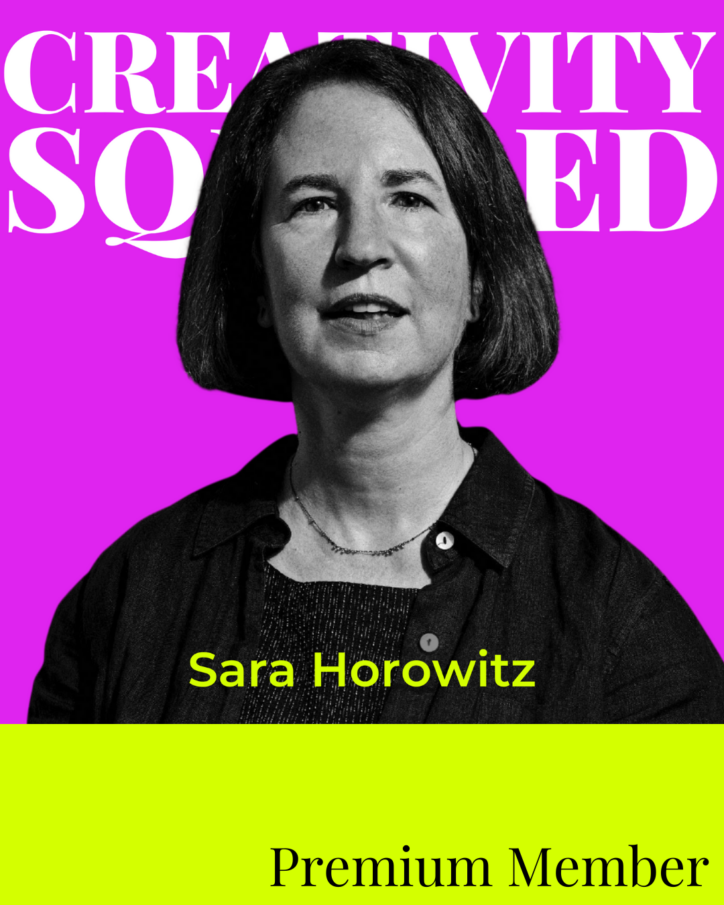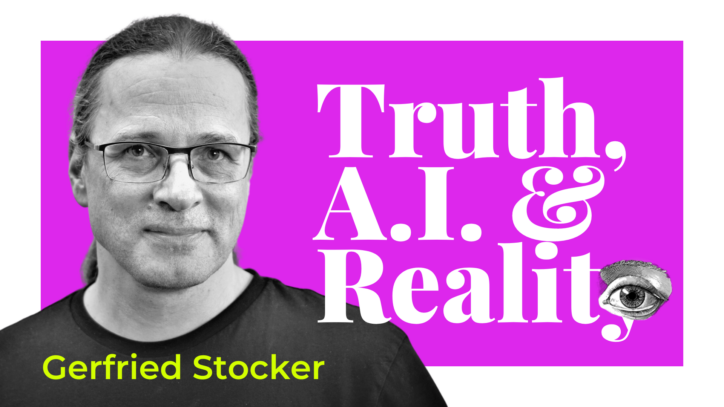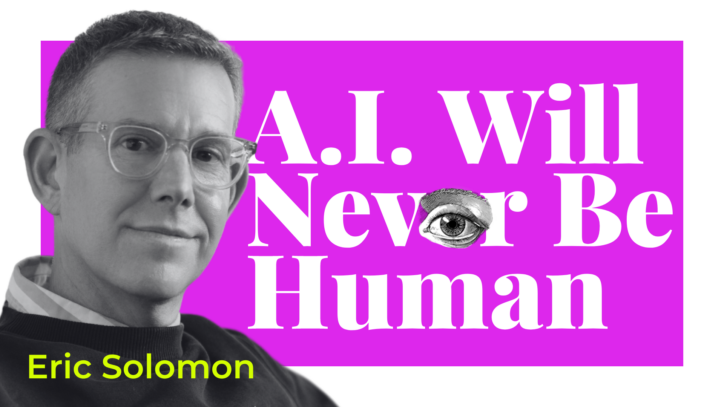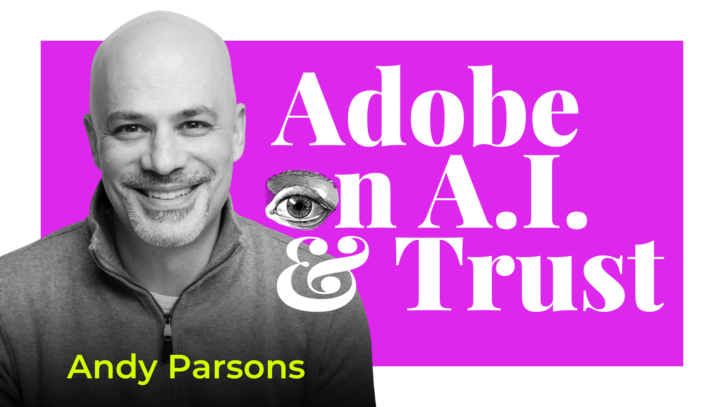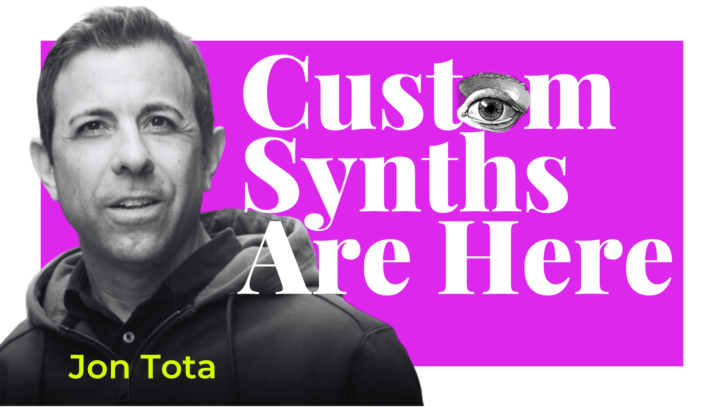
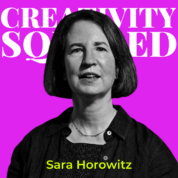
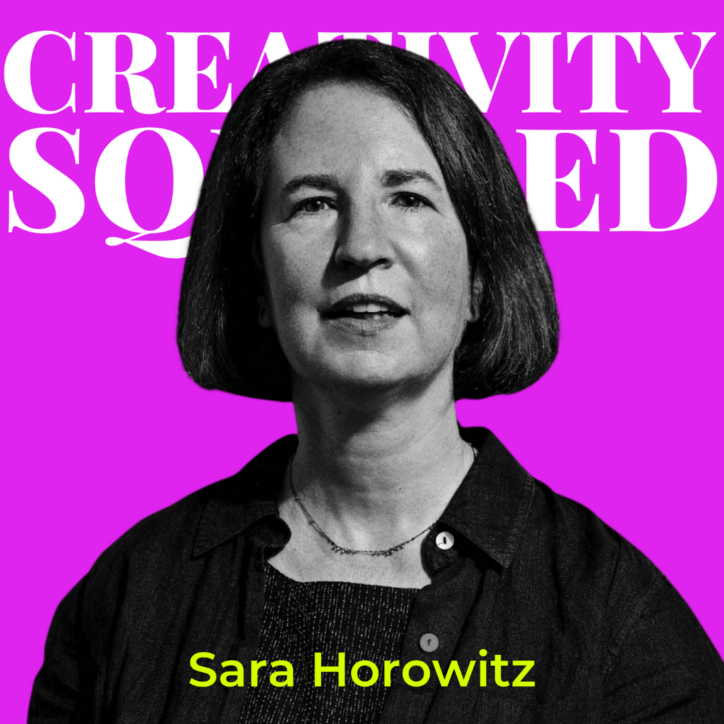
Ep15. Crisis of Imagination: How to Build the A.I. Future We Want with Mutualism from Freelancers Union Founder Sara Horowitz
In the fifteenth episode of Creativity Squared, lifelong mutualist Sara Horowitz joins us for an enlightening, incisive, and thought-provoking discussion at the intersection of A.I., labor movements, and the power of community-driven change.
“I am not going to underestimate the power of decentralization and coordination and integration and cooperation.”
Sara Horowitz
A visionary in the world of labor advocacy and mutualism, Sara has been involved with unions since age eighteen, a career which has included work with the UAW, CSEA, SEIU, and her current position of the board of the Alber Shanker Institute. As the founder of The Freelancers Union, a New York City nonprofit, Sara guided groundbreaking initiatives like the Portable Benefits Network and the Freelancers Insurance Company, championing the well-being of freelancers.
A labor lawyer, former chair of the board of the New York Federal Reserve, and recipient of the MacArthur Fellowship, Sara’s tireless efforts have led to her pivotal role in reshaping the labor economy, culminating in the passage of the Freelance Isn’t Free Act. She has also earned numerous accolades, from the Echoing Green Fellowship to being named one of the World Economic Forum’s 100 Global Leaders for Tomorrow.
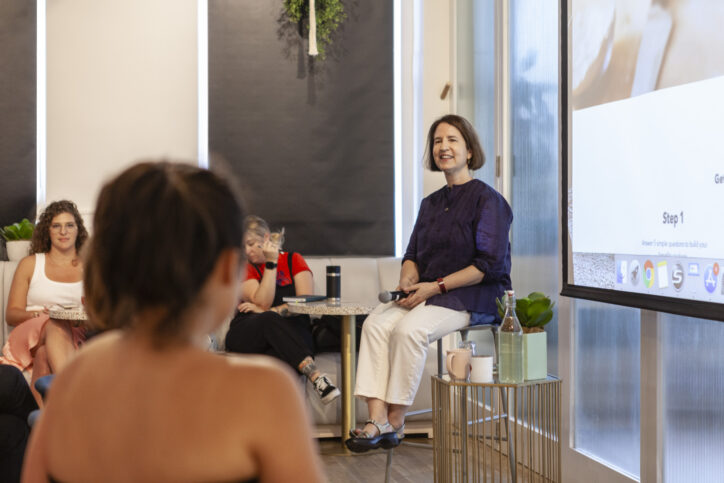
Throughout her work, Sara champions the significance of mutualism, the doctrine of mutual dependence as a necessity to individual and collective social well-being. Sara is currently working to build the Mutualist Society. She is also the author of the book “Mutualism: Building the Next Economy from the Ground Up,” in which she writes about how we need to build our next safety net in America through the local organizations we know and trust. Mutualism exists in 4 principal areas: unions, cooperatives, mutual aid groups, and faith-based institutions, which we is explored more in this episode.
Sara’s resilience, innovation, and unwavering commitment to creating a more equitable and inclusive labor landscape give her a timely and valuable perspective on the present moment, when technology is rapidly reshaping industries and economies.
“We have to change our whole paradigm around conceptions of growth and time.”
Sara Horowitz
In today’s episode, you’ll learn more about the historical context of labor movements and how they relate to today’s culture, including the current writers’ and actors’ strikes. Sara shares her thoughts on the future of technology, including A.I. and DAOs (or decentralized autonomous organizations), and how we can harness this technology from a mutualistic approach that centers on collectivism, community, and building collaboratively. Explore Sara’s vision of embracing a mutualistic future that can bring about positive societal change and a better way forward.
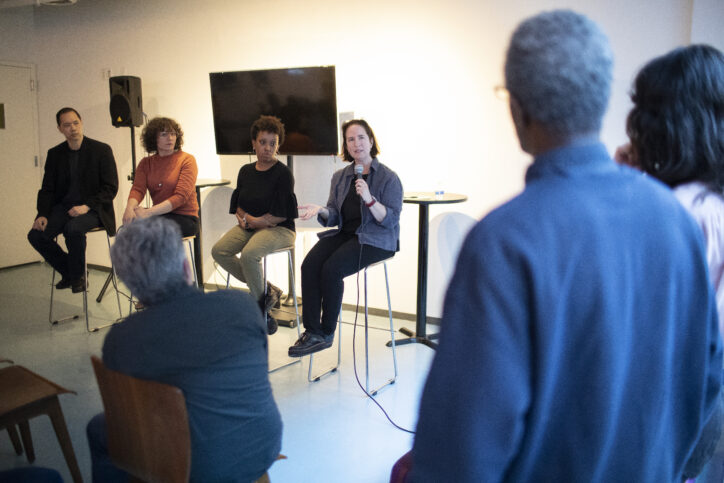
A Paradigm Shift in Labor Movements
At the heart of our discussion is the recent writer’s and actor’s strikes, and the potential strikes looming in various other industries. Sara points out that while we are in the midst of a turbulent summer of labor unrest, there’s a silver lining to the story. With a Biden administration that strongly supports labor, the time is ripe for a paradigm shift in how we approach labor movements. Sara emphasizes the need for labor to evolve, just as it did during the Great Depression when new labor groups emerged to counter the challenges of the time.
“Just like when the government in the 1930s, confronted by massive worker organization and coming out of a depression, could figure out how to do it, we know how to do it. That’s not the hard part. It’s getting it done.”
Sara Horowitz
Sara acknowledges the historical context in which industries like steel, auto, and garment once thrived, underscoring the pressing need for a nuanced approach to globalization and active political engagement. While globalization offers undeniable benefits, it’s essential to strike a balance that ensures sustainable economic practices and builds collective understanding that our choices today shape the future of work and ownership.
According to Sara, this is an opportune moment for the labor movement to evolve and transcend its historical paradigms, fostering an environment where new labor groups can flourish and challenge the status quo.
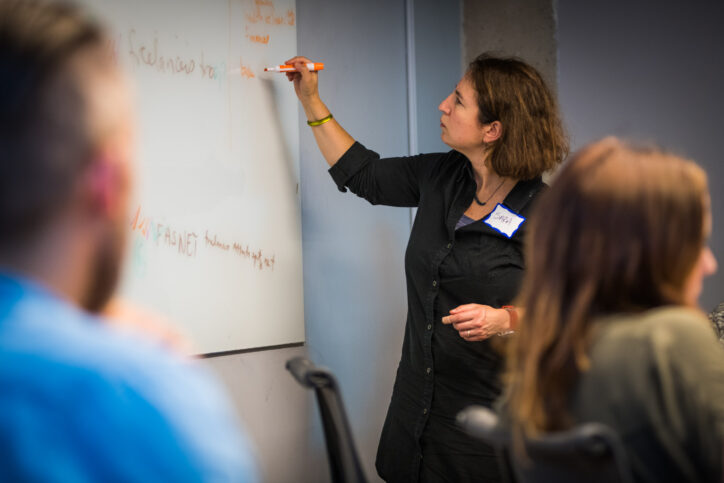
Redefining Work and Growth
The topic of A.I. evokes a range of emotions, from excitement to fear. These sentiments are understandable, but it’s also worth recognizing that A.I. is a tool built by humans.
In this context, Sara highlights the need for a deeper connection between politics and technology, urging us to make conscious decisions about what we build and how we use it.
“The truly revolutionary act right now is to just be a human being and be okay with that. You’re not lazy, you’re not unproductive.”
Sara Horowitz
As we delved into the evolving nature of work, Sara’s insights shed light on a critical aspect of our modern dilemma. She highlighted the fallacy of the “productivity trap,” where the promise of increased efficiency often leads to overwork rather than more leisure time. Sara’s imagines a future where individuals centers themselves, fostering a mutualist world that values human connection, well-being, and sustainability.
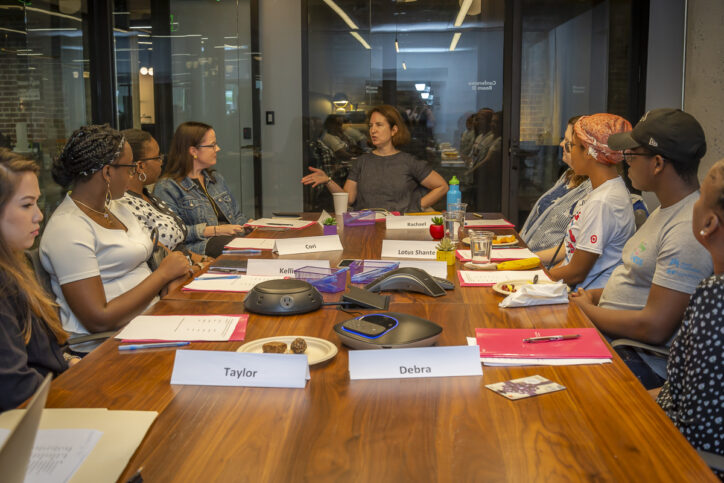
Community, Patient Capital, and Building a New Economy
The conversation takes an inspiring turn when we discuss the potential resurgence of community collectivism. Sara’s exploration of mutualism, an economic philosophy centered around cooperation and shared ownership, offers a sense of hope and possibility. She urges us to envision a future where people come together to create cooperatives, support local businesses, and foster genuine human connections.
“Don’t be afraid of the big ideas. Don’t let anybody tell you not to go that way, because that is the way that will keep us human.”
Sara Horowitz
Sara introduces the concept of “patient capital,” a strategic approach to funding that supports sustainable initiatives and community-driven projects. She points out that patient capital isn’t just for the social sector; it’s a tool that can drive positive change across various industries, an opportunity for businesses and communities alike to embrace the potential.
By encouraging foundations to utilize program-related investments and advocating for strategic procurement, we can create an economy that prioritizes long-term well-being over short-term gains.
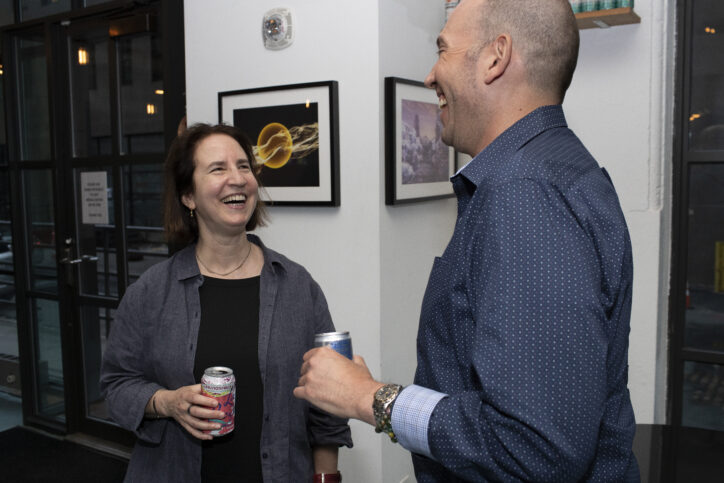
Building a Mutualist A.I. Future
As our conversation comes to a close, Sara leaves us with a powerful call to action. She urges individuals to embrace conviviality, take a step back from the relentless hustle, and find strength in being human. In a world driven by technology, the seemingly simple act of reconnecting with our essence has the potential to spark transformative change.
“Start from a place of feeling strong, and know that there’s nothing that you can’t start.”
Sara Horowitz
Sara Horowitz’s insights and passion for mutualism leave us with a profound sense of possibility. The world is changing rapidly, and the impact of A.I. on labor and society is a central concern. But Sara’s message of building a mutualist future offers a ray of hope.
By embracing community and redefining the way we approach work and technology, we can pave the way for a more sustainable, inclusive, and human-centered economy.
To delve deeper into the principles of mutualism, explore Sara Horowitz’s book, “Mutualism: Building the Next Economy from the Ground Up.” But, as Sara stresses, just don’t order it on Amazon! (As Sara says, “Bad labor practices.”)
Bottom line: Change is inevitable, but mutualism offers a path forward that reminds us of our shared humanity and the incredible potential that lies within our collective efforts.
Links Mentioned in this Podcast
- Mutualist Society’s Website
- More Information on Program-Related Investments
- The Freelancer’s Union Website
- Follow the Freelancer’s Union on Facebook
- Connect with the Freelancer’s Union on Instagram
Continue the Conversation
Thank you, Sara, for being our guest on Creativity Squared.
This show is produced and made possible by the team at PLAY Audio Agency: https://playaudioagency.com.
Creativity Squared is brought to you by Sociality Squared, a social media agency who understands the magic of bringing people together around what they value and love: https://socialitysquared.com.
Because it’s important to support artists, 10% of all revenue Creativity Squared generates will go to ArtsWave, a nationally recognized non-profit that supports over 150 arts organizations, projects, and independent artists.
Join Creativity Squared’s free weekly newsletter and become a premium supporter here.
TRANSCRIPT
Sara Horowitz: And I think that it’s really important to really be politically active now because these are all gonna ultimately become choices for how we decide what we’re building. Just like when the government in the 1930s confronted by massive worker organization and coming out of a depression could figure out how to do it.
We know how to do it. That’s not the hard part. It’s getting it done. It is a crisis of imagination. They are sclerotic. The radicals of today on both sides are really not radical. They are not. They are not our future. We have to build a politics that’s actually gonna work. That’s going to build unions and cooperatives and have capital.
And so I think that’s really the answer. I mean, it’s, and so I think people are right. Of course they’re right. Travel to Ohio, travel to Michigan. That’s scary. It’s scary what happened. But I would also say technology changes. And new jobs are created as well. If we just see this as doomsday, it will just lead to paralysis.
It will not, it will not help us. And I don’t think it’s the truth, I really do, but I do feel like get in there and start doing what you can do, build in your communities and you will see that actually will give you prestige and power and love and light, and a whole better way to lead your daily life.
Helen Todd: Sara Horowitz is a lifelong mutualist and is the founder of the Freelancers Union and the Freelancers Insurance company. A labor attorney, former chair of the board of the New York Federal Reserve and recipient of the MacArthur Fellowship, Sara has been featured on NPR and in the New York Times, the Wall Street Journal and the Atlantic, among other publications.
She lives in Brooklyn, New York with her husband and daughter. Sara is currently working to build the Mutualist Society. She’s also the author of the book, Mutualism and writes about how we need to build our next safety net in America through the local organizations we know and trust. Mutualism exists in four principle areas, unions, cooperatives, mutual aid groups, and faith-based institutions, which we’ll explore more in this episode.
I had the great pleasure of getting to know Sara through working with her as a client of my social media agency, Sociality Squared. I admire her vision and her tenacity to organize and build the world she wants to live in. She’s truly a visionary thinker when it comes to the economy, labor, and societal change.
Her community-oriented approach stems from her grandparents who were garment workers in the 1920s, and from her grandfather who helped organize and was vice president of the Ladies’ Garment Workers’ Union. In today’s episode, you’ll learn more about the historical context of labor movements and how they relate to today’s culture, including the current writer’s and actor’s strikes.
Sara shares her thoughts on the future of technology, including AI and DAOs or decentralized autonomous organizations and how we can harness this technology from a mutualistic approach that centers on collectivism community and building collaboratively. Explore Sara’s vision of embracing a mutualistic future that can bring about positive societal change and a better way forward.
Enjoy.
Theme: But have you ever thought, what if this is all just a dream?
Helen Todd: Welcome to Creativity Squared. Discover how creatives are collaborating with artificial intelligence in your inbox, on YouTube, and on your preferred podcast platform.
Hi, I’m Helen Todd, your host, and I’m so excited to have you join the weekly conversations I’m having with amazing pioneers in this space.
The intention of these conversations is to ignite our collective imagination at the intersection of AI and creativity to envision a world where artists thrive.
Theme: …just a dream
Helen Todd: Sara, it is so good to have you on Creativity Squared. Welcome.
Sara Horowitz: Oh, thank you so much. Pleasure to be here.
Helen Todd: So, we’ll go into more about you and your background, but we always like to kind of start with a hot take and you are all about mutualism. If you want our viewers and listeners to kind of know one thing right now before we kick off our conversation, what is that one thing that you want them to walk away with?
Sara Horowitz: Well, thank you for that. I would say the most important thing is to start thinking about how we’re gonna do things together and not just think about what your individual strategy is. And that’s not just to make you feel good or ’cause it sounds nice, but it’s actually the way that we’re going to really be able to make this big transition that we’re in.
Helen Todd: There’s so many reasons why I’m so excited to have you on the show. But, one of them is, one of the missions of Creativity Squared is to envision a world where artists not only coexist with AI but thrive, and we are in a massive transition. There’s a lot of fears, there’s a lot of excitement related to AI.
Right now, we’ve got the writers strike and the actors are striking as well. And I guess in this transition, you’ve written a book. We’re very excited about Mutualism, that really dives into all this. But before we, I guess go into that, let’s hear a little bit about your history and why you are so well equipped to speak on this subject.
’cause I think that’s kind of sets the stage and gives you such a beautiful perspective on the seat that you sit in.
Sara Horowitz: Wow. Okay, so let me just start by saying, you know, it has been a great joy to have organized freelance workers into the Freelancers Union. And I was building and have built the Freelancers Union and we built a new form of unionism and we built insurance companies and a medical practice and a lot of other things that freelancers needed.
And I would say that, as the changes to the ACA and other things, and the union really had to transition its strategy, it made me really start to think about like what is happening in our economy. And that really led me to this inquiry into mutualism and I would say the upshot I realized that the strategies that I used to build the Freelancers Union were really my grandparents’ strategies as garment workers in the 1920s.
And what they did is they organized, my grandfather was a vice president of the Ladies’ Garment Workers’ Union, and they organized garment workers, immigrant workers and started collecting their capital in the form of dues and out of those dues, they really built an innovation lab that literally built banks and insurance companies.
They pioneered the affordable housing movement that we still use today. They literally pioneered the remittance system where immigrants send money home that we still use. And so then I went on this quest to then start the Mutualist Society, which is to say we need to find the people and organizations all over the world that for centuries have been building these kinds of organizations.
And so that’s what was sort of my past and what I’m doing now.
Helen Todd: Thank you, and for those who might not be familiar with the concept of mutualism, can you kind of do a debrief and tell everyone what mutualism is and why it’s so important in this moment in time?
Sara Horowitz: Yeah. So, you know, the best examples of mutualism are cooperatives, mutual aid groups, the kinds of communities and groups that the faith community builds, like their own schools and universities and hospitals, unions and social entrepreneurs.
And what happens is you might say those things like what do they have to do with one another? But they actually all satisfy these three principles.
And those are the things that I would say if we think about the hot take of like, what’s the one thing? It’s really to just hug these three principles. ’cause it really helps you analyze the world. And the number one thing is, is it a community that’s organizing? And it could be a virtual community, it can be a knitting circle, it can be freelance workers, it could be actors.
And so it’s groups that have solidarity. Something in common. The second is that they have their own economic mechanism. That could be dues, that could be services, it could be alternative currencies, it could be distributed ledger using blockchain, a DAO. It’s this idea of people coming together.
And then the third principle is a long-term vision, which is your goal is to take that economic activity and recycle it into your community. And so what happens, I think, and we could talk a bit about this, is there’s kind of a lack of clarity between these different kinds of government actors, for-profit actors, and social mutualist actors.
And that’s the thing that’s important is to say there’s a mutualist sector. They all share these three principles and they’re different from for-profits and government.
Helen Todd: Yeah. Well, well let’s go down there. ’cause you know, I mentioned when I was reading the book, I was like, oh, you know, B Corps and the triple bottom line. This seems like they have some mutualist ideals, but you’re, you distinguish those in those pillars. So yeah, if you, if you don’t mind expanding, I think that would be, that would be great to hear more on.
Sara Horowitz: Oh sure. So, you know, I think what is really important, like this will come as no surprise to nobody, but we are in the midst of just huge transformation and we keep thinking in these binaries that things either have to be from government or they have to come from the for-profit sector. And really, I think of the economy as a three lane highway.
There’s the government and that’s important and it does critical things. There’s the for-profit sector and there are really important businesses that need to thrive, but then there’s this social sector that has these three principles and what is kind of lack of clarity that I see especially is in the for-profit sector where we have these ideas of ESGs and triple bottom lines and B Corp.
And they’re wonderful, but they’re in the business sector and they are in the business of having returns that go to investors. And so one of the biggest things that you see, particularly as groups try to form cooperatives and social entrepreneurs try to scale is there’s no capital market for this. So either you have to wait for government to come in and do it, or the for-profit needs to see that there is something in it for them.
So you see that we’re actually having a crisis of this right now because the mutualist sector or the, it’s the sector of democracy. It’s the sector of local people building locally what they need. And so mutualist society is starting to say, let’s start taking the examples of the groups we’ve seen that have grown.
Let’s start launching these mutualists and start articulating what they need to grow, and we will see that all over the country and local areas and all over the globe, it’s already there. The kindling is there, the groups are there. They just need to start to get together and, and weave.
Helen Todd: Thank you for explaining more about mutualism.
So what does a mutualist structure look like in this era of artificial intelligence?
Sara Horowitz: Yeah. First of all, that’s such a great question and I’m really glad to be talking about this. What I’ve really come to see, especially as we start to look at technology, and let’s just remember, we, ever since they’re human beings, there’s been technology, right?
So technology isn’t what’s new, it’s the type of technology that’s new. And what’s really important I think in this moment is to say, is this technology mutualistic? Are we building this ourselves? And are we building this for what we need? Or are we being presented on a platter what this new technology will look like? And then we are being told how we have to fit ourselves into it.
And I think it’s really important to have that distinction in our minds because again, I really feel like 2023 and 2024, these are the years of clarity. Like, you know, my grandfather used to have this Yiddish phrase that he used that’s pretty common.
I don’t even know the Yiddish, but it’s, don’t pee on my back and tell me it’s raining. And it’s like, let’s not say that we think that the technology that’s being served to us, not just by Silicon Valley, but the for-profit sector, triple bottom line and even B Corps, fine you’re businesses, but I wanna know: what are we building for the local communities that are really helping them, and what’s the market for that and how do we organize ourselves? How do we look at zoning laws? How do we look at progressive procurement so that we can start to make it so that we have shared ownership and then we’re using AI but it’s in ways that are now really being developed and built so we know that firefighters and teachers and actors and citizens and people who live in housing cooperatives are driving this. That would give me a ton more confidence in this than somebody that’s realizing how they’re going to extract the returns from this.
Helen Todd: So how does that look? Because the landscape that we’re in is that the computing power for like, for these things are so large that you have these mega corporations, Google, OpenAI backed by Microsoft, you have StabilityAI, which is more distributed, which is a break from that, but the computing power needed isn’t really at a local level yet, so I am 100% with you.
And I guess just like talking it through, like how would, how would you change that dynamic where the computing power needed exists and you’re working mutualistic from a local level?
Sara Horowitz: Yeah. So I think that we have to look at this at a bunch of different levels. So the first level is the seasoned mutualists, like the Screen Actors Guild, AFTRA, the the Writer’s Guild, they have so many members who pay dues, they are mutualist organizations.
Because they have their own money, they can hire their own experts, and they are in a position where they can challenge the industry that is intending to use this technology. And so you start to have more of a fair fight where people actually have the ability to articulate something that will be sustainable for human beings.
And I think that’s important, and that’s for right now. But I think we actually have to take some moments to think about some other ways to think about this. And interestingly, to me, I think about the Utopians in the 1830s to the 1850s and when they started forming like the Shakers, Oneida, they actually started to pool their resources and actually built their own technology compared to other people at the time who were in their own homes, in their own cottage industry at home.
And because they had this powerful collective, they actually were able to be so much better off, socially and economically. And so one of the things that I think we have to do is to say, okay, there are these really important things we must deal with right now.
And you can’t underestimate that, but there’s something else that has to happen that it’s actually not – mutualist infrastructure is not that there’s just little one-off AIs happening in every little unit. It’s that you actually start to see through a collectivity. And whether it could be through cooperatives or social enterprises, but something where there’s ownership and decision-making rights, DAOs.
The blockchain and distributed ledger actually give us this counterbalance to it, but the challenge right now is a lot of the people that are working on DAOs and decentralized ledger, they don’t really understand the decision-making rights.
They’re actually as sophisticated, they as they are on the technology side. They’re kind of really, sort of not, not the most seasoned on really being sophisticated about the mechanics of democracy. And so one of the things the Mutualist Society is doing is starting to bring the seasoned mutualists, the people that have been working on co-ops and unions with the people that are really excited about this.
And that’s very much part of our ecosystem, is to be really thinking about how are we gonna be using and developing this? And we are not alone. And it’s, there are just these groups that are emerging. So I would say it’s early but I’m not gonna underestimate the power of decentralization and coordination and integration and cooperation.
And I think that, that, that will be the next generation that will start articulating this.
Helen Todd: I love that. And I, I wasn’t aware that those conversations were already happening, where the blockchain and the mutualists are collaborating. For anyone who might be interested in learning more or getting involved, can you point us in a certain direction to learn more about that?
Sara Horowitz: Yeah, yeah. So, people can go to the mutualist society.net and you can just sign up, but I’ve been really weaving together the seasoned mutualists and the people who really are committed. So anybody should feel free to go and sign up, but really it’s not a place for people to come who wanna learn so they can then extract because it’s just not that kind of community.
And so I’ve been really careful about that because I do think, as I said before, 2023 and 2024, we just have to get clarity. What’s our strategy? What are we doing? And one thing I would say that I’ve really been learning in the last year is that there really is a mutualist process. I used it when I was building the Freelancers Union.
I’m using it now for the Mutualist Society. But what I’ve learned from other mutualists is, everybody uses it. It’s just we think we’re doing it ourselves because it’s not a McKinsey neoliberal strategy, but it’s really an idea of emergence. And there are really great books on this that people have been writing, but we have to kind of see this more broadly.
And the idea is you start to bring together the people that passionately care. You know, I’ve made up my own index. It’s called GAF, and you have to have a high GAF, and GAF stands for give a fuck. And so if you can really bring the people who care together and hear their ideas and let it emerge, then you start to organize from there.
And it’s a very hard strategy. It’s not wishy-washy. It’s just as rigorous as neoliberalism because you have to really hear and think and digest and put back. But it is, it is a process that works.
Helen Todd: Thank you so much for explaining that. And you know, since the writer strike has come up a few times, I would love to hear your thoughts and reactions to what’s happening with the writers strike now.
Sara Horowitz: Great, and what I would love to do is tell you a little bit about the labor history of the 1930s, because I think it’s so completely interesting and relevant today. And I think we should all be studying labor history much more than we have.
So when the unions were organizing the writers, the actors, the directors, their work was very much kind of like voiceover artists.
You had work that was episodic, you’d come in, you’d do a television show, a movie, and then you’d be done. And people were W2’d, made employees. And so, when we created the National Labor Relations Act of the 1930s to start to think about our whole system, we said in Hollywood, it doesn’t matter if you’re termed an independent contractor and you do one voiceover for two hours, you’ll get a W2, which is very different from the way that we do this for independent contractors where they have no social safety net whatsoever.
But when there was a will, there was a way and the actors are all W2s, which is how they’re able to form unions.
But what is the most interesting thing is that they had to strike for recognition and they had to shut down Hollywood to, in order to get the studios to recognize them. And people may not know this, but what happened was the Teamsters who delivered the machinery by truck were the ones that struck in solidarity, shut down Hollywood and got all the Hollywood workers to be able to be recognized.
And it really shows that we have to get back to this cross class kind of notion. We can’t just say we have, we only care about the poor and we can’t say that we only care about the middle class. We have to care about workers across the board.
So to the writers strike, what I think is really important is that they are seeing what the future is looking like, and they have done this before, decade after decade, and have to start to build in fairness. And I think that that’s why these issues are coming to the fore right now because this is an economic fight. It really is.
Somebody’s going to be benefiting from all of this technology, and if we don’t make it so that citizens and taxpayers do, it’s not because we’re all altruist. It’s because you need a tax base to keep America, America. If we lose our tax base. Not good. And so that’s why we have to start to care about these things.
And I think that’s a different framing of how we’re looking at this. I think you and I would agree the answer isn’t that you’re gonna turn back technology because that strategy has zero chance of working, but you have to have a hand in it. And I think it’s two parts. One part is a reaction like the unions.
The second part is to start building what we need. And if you don’t build, you don’t have insight and you don’t have power. And that’s what I think is the moment we have to get to.
Helen Todd: Well, and I also think it wouldn’t be as scary of a situation, one, if they were compensated properly with the changing of the technology and also that they could almost be excited to collaborate with AI.
But if their livelihoods are taken away and all of the safety net is taken away, are taken away, then that’s the scary part. You know, the societal structures that you speak about don’t exist for writers and AI in the creative industries to thrive, and this is what we’re seeing. Would you agree with that?
Sara Horowitz: Yeah, but you know, the United Artists started with some, I don’t know, united artists and they formed their own company, which now we just think of as United Artists.
So what we have to start to realize is every group that we look to today started somewhere. And so I think in the last sort of 15 years, in this kind of neoliberal wave over us, we really feel disempowered.
We feel like, well, these are the big guys. What are we gonna do about it? And it’s like, no, no, no. Like we have one life to live. You start here right now and start to build, and you form your own United Artists. You think about how you going to start to collectivize this and start to, yes, put your time in, volunteer.
There’s no sin in that. Start to organize. Anybody who’s built any social movement. You know, you put your time and your sweat in on the line and start to build and don’t just wait for a big foundation grant to like get you started. ’cause doesn’t work.
Helen Todd: So what’s your take on the outcome of the writers strike, especially with like the Teamsters also, since you mentioned that looks like they’re potentially could strike as early as August one as well.
Sara Horowitz: Yeah, I mean, I think this is the, this has been quite a, a summer, you know, in terms of the UPS, United Parcel Service, Teamsters, may go on strike. And, the auto industry as UAW is also talking about going on strike and Hollywood. And we have a Biden administration, and that’s very pro-labor.
Probably the most pro-labor since I’ve been alive since, really Kennedy who signed the executive order that let public sector workers unionize. And so I think that people are so pro-labor, but I think labor has to also evolve. And that’s not something that should be frightening because the labor movement is in a perfect position.
And so you see a lot of new labor groups that have emerged like Saket Soni with the Resilience Force and Green Workers Alliance, and a lot of other kinds of groups. But we need to do what the National Labor Relations Act did in the 1930s and let let the new systems flourish, let them build, let them be the counterpoint to the technology, and then to be the users of the technology and builders of the technology.
Helen Todd: And I know one, you know, when it comes to AI and I talk about my podcast, I get lots of varying reactions of like, oh my God, that’s so cool and exciting. And some is really, it’s very divisive and, you know, scary of like, oh my God, AI is gonna destroy humanity and take all of our jobs. And at the same time, job displacement is a reality that we’re going to have, I mean, with your family history of going from garment workers to, you know, that’s not really industry in the US anymore. The way that your, your grand, or was it your great-grandmother, Sara Horowitz?
Sara Horowitz: Uh, no grandparent. Oh yeah. Great-grandmother, right, right
Helen Todd: Great-grandmother. Sara Horowitz was as a garment worker And at the same time, you know, the counterpoint to that is, you know, for the jobs displaced, there’ll be whole new jobs and industries like I went to school for marketing and social media did not exist as an industry, which that’s been a large part of my life for the last 13 years.
And the need for upskilling is like one of the counterpoints to that too. But I’m just curious, your thoughts on, you know, just the, really, the impact of the changing landscape of AI to the impact on jobs and the evolution of, you know, how these jobs could be displaced and evolve and open up new jobs, like how you’re thinking about it, talking with people and especially, you know, maybe some of the freelancers who are really scared about losing their livelihoods due to displacement.
Sara Horowitz: Yeah. You know, I think that one thing that’s so important is to really see the connection to politics. You know, because we had a viable steel industry and we had a viable auto industry, and we had so many – garment industries, and I’m not saying that we should have stopped having globalization, but it wasn’t an on/off switch.
And I think that it’s really important to really be politically active now because these are all gonna ultimately become choices for how we decide what we’re building. Just like when the government in the 1930s confronted by massive worker organization and coming out of a depression could figure out how to do it, we know how to do it. That’s not the hard part.
It’s getting it done. It is a crisis of imagination. They are sclerotic. The radicals of today on both sides are really not radical. They are not, they are not our future. We have to build a politics that’s actually gonna work, that’s going to build unions and cooperatives and have capital.
And so I think that’s really the answer. I mean, it’s, and so I think people are right. Of course they’re right. Travel to Ohio, travel to Michigan. That’s scary. It’s scary what happened. But I would also say technology changes and new jobs are created as well. If we just see this as doomsday, it will just lead to paralysis.
It will not, it will not help us. And I, and I don’t think it’s the truth, I really do, but I do feel like, get in there and start doing what you can do, build in your communities and you’ll see that actually will give you prestige and power and love and light and a whole better way to lead your daily life.
Helen Todd: I think sometimes in the conversations when we talk about AI that we forget that it’s humans building these tools, and to your point, you know, the choice and of the will of the people and whatnot, really can impact the trajectory of how we want these tools to support humanity or not.
One of the, one of the other things that, actually I heard in another podcast as people are thinking about themselves, oh, actually this came from one conversation that I recently had.
Another owner of a social media agency. We were talking about AI and you know, the efficiency and productivity, and this is something that comes up a lot too when we think about the workforce and AI, that we’re all gonna become more productive, and be able to produce a lot more.
And I know the book, Utopia for Realists with Rutger Bregman, he stated in it that I think the 20th century people thought that our, what was it, the 19th century people thought that the 20th century people, our biggest issue would be what we would be, what would we do with all of our leisure time? You know, because we’d have all this leisure, but that hasn’t been the case at all.
The more productive we’ve become, the more we’ve just piled on work and expected more work out of the, out of our time. And with this, you know, the efficiencies in AI, it just seems like to stay competitive. You know, people are like, how can we even do more, uh, get more out of people? And I have a very strong reaction, like, this isn’t the world that I wanna live in.
And I think you even stated in your book, you know, How do you, how would you imagine your perfect workday? To me, I wouldn’t wanna be squeezed for even more productivity in the same amount of hours and not be compensated or even, I don’t want that to begin with.
So anyway, I’m really curious you know, as we’re thinking about the future, we wanna envision and live in like how people, especially, I think that’s a question a lot of owners and people who employ freelancers and teams right now are thinking about being competitive how to find efficiencies, like how, what would you say to them? Because I think that’s something that a lot of people can take away of, like how to think about that, you know, from this conversation.
Sara Horowitz: Yeah, yeah. You know, kind of like every, everything in this moment sort of exists to me on two time planes. One is like the here and the now, and we, we can’t just say, think deeply, like what are we gonna do right now? But then another one is you have to say to yourself, what, what are we just blindly accepting here?
And these ideas of productivity and growth are not sustainable for the the earth. Climate change will not, will only get worse if every country races to grow at an enormous pace using AI. Like this is not gonna work for anybody. And so I think that we have to change our whole paradigm around conceptions of growth and time.
And so I think that we either will go like lambs very quietly and not really be saying no. Not having an idea about how to reorganize ourselves. And we have to be really careful that in the moment we don’t just do that. And I think the really, the way to start to think about it is literally your day, you have one day, one seven days in a week, and 30, 31, 28 in a month, 365 ish in a year.
So what is your day and do you have time? Do you have time to wake up, you know, make your steel cut oatmeal or however you make your long cooking thing. Do you have a time for a cup of coffee to look out the window to meet a friend? You know, do you have time to take a walk, walk your dog, visit with a parent, pick up a child?
Why are these luxuries? And so I think that one of the things we have to start to do is to say maybe we don’t need what we’re being told as consumers. You know, maybe we actually, you know, that big house that people are buying and building. I look at them, I’m like, oh my God, I cannot imagine cleaning that and the air conditioning and the heat for that.
Like, why are we doing this? And so I think that’s what is so important is you start to actually think about that and then start questioning these ideas about productivity. And so, yes, I can totally understand why a for-profit that employs a ton of people would love to use AI and not have pension and health insurance payments.
That’s not irrational, but it’s how we’ve set up a system that’s not sustainable. But wouldn’t you just feel better to know that there was a company where people were owners? Or had an ownership stake and those decisions were hard and there were trade-offs that had to be made. So nobody’s saying there’s some panacea or utopia, but like, wouldn’t we feel better if we could at least make decisions at like some significant margin?
And I think that that, that comes from us centering ourselves and I know that this sounds like crazy, but you know, I think that’s why so many people are starting to meditate and do yoga and to think about their breath and you know, wanna bird and look at trees because this is what reminds us that we’re human, that we’re sitting on Zoom calls all day long and it’s doing something to our brains and our attention spans.
And I’m not for that world. I want a mutualist world. Like I, I love Bologna. You know, the Emilia-Romagna, in around Bologna and the Basque region in Spain, in the regions in Quebec, in South Korea and Africa, there are huge parts of the economy. MadRag and Emelia-Romagna are almost 10% of the GDP of the entire country in cooperative output.
And when you go to there, and I encourage people to go. People are walking on the street, they’re hanging out in bars. And I don’t just mean 23 year olds, I mean like 60 year olds and 70 year olds, and they’re hanging out and they have such lower incidents of anxiety and alienation. And it’s because you know how much a glass of wine in Bologna costs? Three euros, which is like $3, and you can nurse it for the whole night.
Show me a place in America where you can do that. That’s what I mean. Like don’t be scared of the big ideas and don’t let anybody tell you not to go that way. ’cause that is the way that we’ll keep us human.
Helen Todd: And you mentioned in your book kind of the, the change from when we were more like collectivists, I think is the word that you use and then shifted to individualism.
And do you, I, I know that, you know, you’re definitely. Pushing and embracing and promoting mutualism. But do you feel like the pendulum swinging back to more of a community collectivism, you know, approach and like, did the pandemic help or hurt that? You know, ’cause I, I definitely, you know, don’t think in individualism has served us very well, but are, are you seeing that swing going back to the more community-based values?
Sara Horowitz: Yeah, yeah. But you know, it’s funny, lemme just say I’m like super entrepreneurial. I’m like a builder. I don’t know why I’ve been like this since I was little. You know, I love Ashoka and Echoing Green and the social entrepreneurs. So this isn’t about like, oh, we need to like form some communal thing where individuals are like subsumed and no, it’s actually your greatest chance of being yourself.
And so I do think that it doesn’t come just because we like it as an idea. Like, do you like, you know, chocolate ice cream, vanilla ice cream, or you know, collectivist ice cream. It’s because people actually have problems that need a solution. And so we talk about affordable housing, like am I crazy? But like there’s all this commercial real estate and every city that’s going vacant and we have all the affordable housing needs.
Seriously, we can’t find a way. I find that truly hard to believe. It’s that we can’t find a way that lets the real estate developers stay rich. Like we have affordable housing issues. There’s a wonderful group in the UK called, Something Edibles, but I don’t mean marijuana, but like where they are growing vegetables around their whole town.
So while you’re waiting for the bus, you can like pick a tomato and eat it. Like we should be having all sorts of places where we are growing vegetables and having farmers come and trade, not just in farmer’s markets, but these are the kinds of things that get us quality food that’s affordable, a great place to live with people that we wanna hang out with.
It’s, that’s why the pendulum is swinging because we now are looking at the worst distribution of income. People have just gotten too greedy. And I don’t think greedy people are happy either ’cause it sucks to, probably less, sucks to be greedy than poor for sure. But it’s not, it’s not making people happy.
And that’s why it’s swinging. And I think that’s America. Like if you look at the red states, you know, people actually, I think are in some ways more mutualistic because they’re always helping their neighbor. They’re always more active in their faith communities. They actually build so much more than the people on the coasts who talk a big line.
So I actually think that is going back and bringing America together more.
Helen Todd: That’s great. Well, and you mentioned before we started recording that you might not have the most positive outlook on AI. So I’d love to hear like, ’cause because the podcast we do explore the bad, the good and everything in between.
What you meant by that and then also what, what’s giving you the most hope to when we, when you hear the word artificial intelligence and what that means in this moment in time?
Sara Horowitz: Yeah, I mean I think just to state the obvious, it’s here, you know, and I think that that’s just the truth. I think people will be displaced.
I think that it will be hard, and I think these are just truths. And I think that it’s really important though to realize that every generation practically has had something that they’ve been confronted by. And we are no different. It is the ability to start to see where the light is, to see where you can grow.
And with every time of struggle, there’s always a time that we build. And it’s not that you would choose to have the struggle. You know, the Italian cooperatives started after World War II, after they were decimated by the Nazis and the partisans were in the mountains. Whether they were Christians who were anti-communist and anti-socialist, communists, socialists, and everybody in between.
And when they came down, they said, what are we gonna build? And they built this cooperative system because it actually worked and they’re all still a part of it. So I actually think with AI we have to first have clarity. Do not listen to anybody, ask them. Go through the three principles.
Are you building a solidaristic community? Or are you building something that you’re saying is triple bottom line or a B Corp for others, but where’s the money gonna go? Is there a revenue model? Grab the revenue model, don’t give it to them. And third, start to have a long-term vision. And think about how you’re gonna recycle that money and start where you can.
And don’t be ashamed if the first thing you do is collect money and all have lunch. But get your mutualist muscles together. Call yourself something. Call yourself the group, the Cincinnati group, you know, the Adirondack group, like whatever you are, call it, name it, be it, and just start to organize.
And then do not go on and start a Facebook group or if you do, get off it as fast as you can.
Helen Todd: Well in one of the terms that I hadn’t heard of that is in the book is patient capital and I was wondering if you could share more about that. And then also you pointed out a couple of very specific things to support that, even changing the tax code, which is a much more tactical.
But I was wondering if you could share with our listeners and viewers, patient capital and lending and kind of how that could be incorporated too.
Sara Horowitz: Yeah. You know, first of all, patient capital isn’t just for the social sector. You know, corporations have been the best at getting the cheapest capital out of government.
Think big box door coming to your area sometime soon. They got just a great package of things that made the capital to come there so much cheaper. So we just want that same thing. Capital is capital. But if you look down at history, the union, the foundation world actually has a tool that they just simply don’t use.
It’s a crime and they should be ashamed at how little they use it. It’s called a program-related investment. Go to your foundation and tell them that the IRS commands them to not be charging you more than 2% for a loan that comes out of their of, not out of their endowment, but out of what the endowment generates.
So those are tools that we should just be using and saying, why are you like sitting on boards of fancy places and not using the capital that you’re supposed to? That’s one. Another one is to say to government, like, let’s have some procurement that goes to cooperatives. The driver’s cooperative in New York has been able to negotiate with the City of New York for procurement.
This is happening all over, but it has to be in a more systematic way. So what we can start to do, what we’re doing is we’re saying, let’s start figuring out how we get this capital. And oftentimes it’s from organizing. That’s why I’m saying start your group. The Adirondack Group. The Cincinnati group.
Although there’s a great group in Cincinnati, Co-op Cincy. And start to then meet with your local officials, knock on your neighbor’s doors, start to make an argument for why you should be getting this and that you would be doing a great job to deliver a service.
So patient capital is just being able to recognize that capital is a business, and either government acts to command that that business only exists at interest rates that are low. Or there’s a strategic reason for it. Or there’s a service to be provided.
So patient capital says, if you start from the idea that you’re just competing with the big guys, you’re over. You’re never gonna get anywhere. Your toast. And that’s just the truth. Okay. Building block. So start where you can and then build.
Helen Todd: Thank you, well, Sara, before we close out, also I did mention at the beginning we have a mutual friend, Phil, and how I know you and he’s actually been on the episode or has a episode where we got to interview him. So coming full circle, which is nice, are there any closing thoughts before we sign off that I might not have covered already or that you just wanna reiterate before we let you go today?
Sara Horowitz: You know, lately my favorite word is a word I learned from a friend about conviviality, and I think it’s something about. Really taking a step back right now and hitting pause and really thinking, and I think that we don’t do that enough and big ideas don’t come, you know, between 10 and 11 on a Wednesday.
They come when you’re taking a walk. Somewhere, or you’re seeing a movie or just doing something that’s giving your brain some rest. And I do think like the truly revolutionary act right now is to just be a human being and be okay with that.
You’re not lazy, you’re not unproductive. And I think that, that, that is where these, these things will all begin and start from a place of feeling strong and finding your strength, and finding the things you wanna do and knowing that there’s nothing that you can’t start.
And you know, when I was at Freelancers Union and I was having a hard day, I came up this with this phrase, which was put one foot in front of the other, have a glass of water, and take a deep breath. Because those were always three things I could do.
And I think that’s, we have very big things to build and we have a lot of ambition and that’s how it starts. Don’t be afraid of the small steps.
Helen Todd: I love that. I feel like that’s something that everyone who hears this can really take away today.
Tell us about the book where people can learn more. Get the book. I got mine off of Amazon, but let’s do a quick plug for, for your book, Mutualism.
Sara Horowitz: Yeah. So, you can go to mutualistsociety.net and sign up so we can have a conversation and tell me a little bit about yourself. That would be great. You can buy the book, don’t buy it on Amazon. Bad labor practices. You can buy it on bookshop.org and support independent businesses.
Better yet, ask your library to order it so you don’t have to pay for it. And yeah, so that’s, that’s it. And, would love to hear from people who wanna build. And just love to hear about people’s life story.
Helen Todd: Thank you, I’ve ordered too many books from Amazon and now I’ll have to change that.
Well, it’s been an absolute pleasure. Thank you so much. And I think, I just so appreciate all the work that you do. You have a vision for the world that you want and that you’re just working to build it. So thank you so much and for spending a little bit of time, on the show today and sharing that with, with our community.
So thank you Sara.
Sara Horowitz: Thank you. I think you’re also really a remarkable person and role model yourself. So, you really, you really are. So thank you, and this has been a great pleasure.
Helen Todd: Thank you for spending some time with us today. We’re just getting started and would love your support. Subscribe to Creativity Squared on your preferred podcast platform and leave a review. It really helps and I’d love to hear your feedback. What topics are you thinking about and want to dive into more.
I invite you to visit creativitysquared.com to let me know. And while you’re there, be sure to sign up for our free weekly newsletter so you can easily stay on top of all the latest news at the intersection of AI and creativity.
Because it’s so important to support artists, 10% of all revenue, Creativity Squared generates will go to ArtsWave, a nationally recognized nonprofit that supports over a hundred arts organizations. Become a premium newsletter subscriber, or leave a tip on the website to support this project and ArtsWave and premium newsletter subscribers will receive NFTs of episode cover art, and more extras to say thank you for helping bring my dream to life.
And a big, big thank you to everyone who’s offered their time, energy, and encouragement and support so far. I really appreciate it from the bottom of my heart.
This show is produced and made possible by the team at Play Audio Agency. Until next week, keep creating.
Theme: Just a dream, dream

